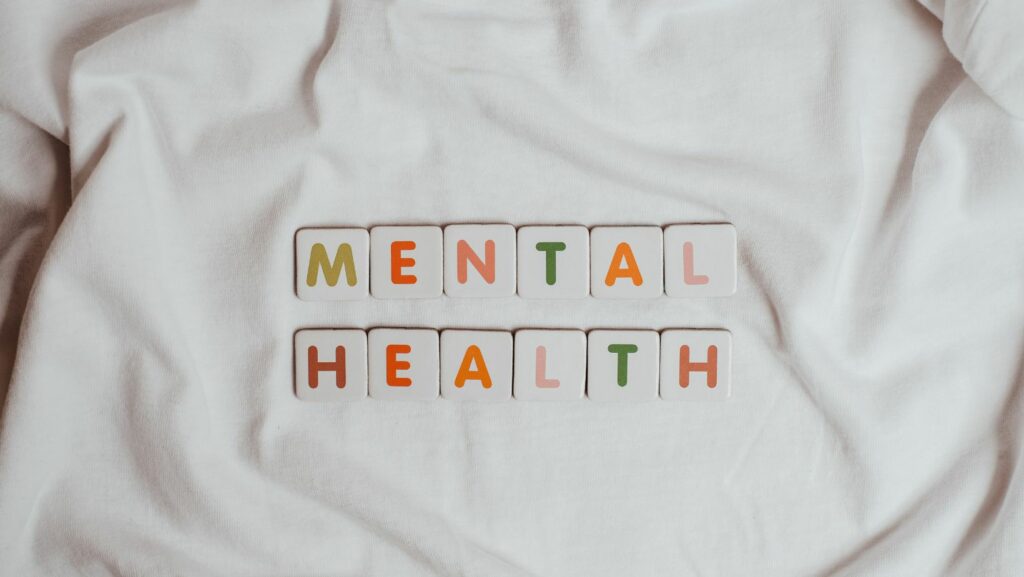In the fast-paced world we live in, mental health has taken center stage, prompting a surge in innovative solutions to support well-being. Mental health technology, a burgeoning field at the intersection of healthcare and digital innovation, offers promising tools for individuals seeking to improve their mental health. From apps that guide meditation to platforms offering virtual therapy sessions, this technology is reshaping how people access and receive mental health services.
Mental Health Technology
 In the realm of mental health care, technology’s ascent marks a transformative era. Innovations like meditation apps, virtual therapy platforms, and mood-tracking tools exemplify the tech-driven evolution. These advancements make mental health support more accessible, removing traditional barriers to care such as cost, location, and stigma. Meditation apps, for instance, offer guided sessions that users can access anytime, anywhere, making mindfulness practice more convenient.
In the realm of mental health care, technology’s ascent marks a transformative era. Innovations like meditation apps, virtual therapy platforms, and mood-tracking tools exemplify the tech-driven evolution. These advancements make mental health support more accessible, removing traditional barriers to care such as cost, location, and stigma. Meditation apps, for instance, offer guided sessions that users can access anytime, anywhere, making mindfulness practice more convenient.
Virtual therapy platforms connect individuals with mental health professionals remotely, ensuring help is available regardless of geographical constraints. Moreover, mood-tracking tools empower users to monitor their emotional well-being, facilitating early intervention when necessary. Collectively, these technologies underscore a significant shift towards more personalized, accessible, and efficient mental health care solutions, reflecting the industry’s response to the growing demand for innovative and effective support mechanisms.
Benefits of Technology in Mental Health Care
 Technology in mental health care introduces several advantages that enhance patient treatment and support systems. One of the significant benefits is improved accessibility, making mental health resources available to individuals in remote locations or those with mobility issues. These technologies, such as mobile apps and online platforms, allow users to access care from the comfort of their homes, eradicating geographical and physical barriers. Additionally, technology contributes to the destigmatization of mental health issues. Digital platforms offer a level of anonymity that encourages more people to seek help without fear of judgment.
Technology in mental health care introduces several advantages that enhance patient treatment and support systems. One of the significant benefits is improved accessibility, making mental health resources available to individuals in remote locations or those with mobility issues. These technologies, such as mobile apps and online platforms, allow users to access care from the comfort of their homes, eradicating geographical and physical barriers. Additionally, technology contributes to the destigmatization of mental health issues. Digital platforms offer a level of anonymity that encourages more people to seek help without fear of judgment.
Moreover, technology fosters personalized care. With tools like AI-driven chatbots and data analytics, care providers can tailor treatments to meet individual patient needs, improving treatment outcomes. Lastly, mental health technology offers cost-effective solutions by reducing the need for in-person therapy sessions, making mental health care more affordable for a larger population.
Types of Mental Health Technologies
Building on the transformative impact outlined, various types of mental health technologies categorically enhance care and accessibility. First, mobile applications such as meditation apps and mood trackers simplify self-managed care, enabling users to monitor and improve their mental health daily. Second, virtual therapy platforms connect individuals with therapists online, breaking down geographical barriers and making counseling sessions more flexible and accessible.
AI-driven tools, including chatbots, offer immediate support and personalized care by analyzing user inputs and providing tailored mental health exercises. Lastly, telepsychiatry services enable psychiatric evaluations and medication management through video conferencing, broadening the reach of specialized mental health professionals.
Challenges and Considerations
 While mental health technology revolutionizes access to care, it also faces challenges and considerations. Key among these is ensuring data privacy and security, especially given the sensitive nature of mental health information. Developers must adhere to stringent regulations, like HIPAA in the United States, to protect patient data from breaches or unauthorized access. Another consideration is maintaining the human element in mental health care. While technology can augment therapy and support, it cannot fully replace the nuanced understanding and empathy provided by a human therapist.
While mental health technology revolutionizes access to care, it also faces challenges and considerations. Key among these is ensuring data privacy and security, especially given the sensitive nature of mental health information. Developers must adhere to stringent regulations, like HIPAA in the United States, to protect patient data from breaches or unauthorized access. Another consideration is maintaining the human element in mental health care. While technology can augment therapy and support, it cannot fully replace the nuanced understanding and empathy provided by a human therapist.
Additionally, there is a need for widespread digital literacy and access to ensure these technologies benefit everyone, not just those with the means and knowledge to use them. As such, stakeholders must address these challenges to ensure mental health technology continues to advance care effectively and ethically.
The Future of Mental Health Technology
The journey of mental health technology is on a promising path, blending innovation with the profound need for accessible and personalized mental health care. As it continues to break down traditional barriers, the potential to reshape mental health services is immense. However, the road ahead requires careful navigation. Stakeholders must prioritize data privacy, preserve the human connection in therapy, and strive for universal access. With these challenges addressed, mental health technology can not only meet but exceed our expectations, offering a brighter, more inclusive future for mental health care.

